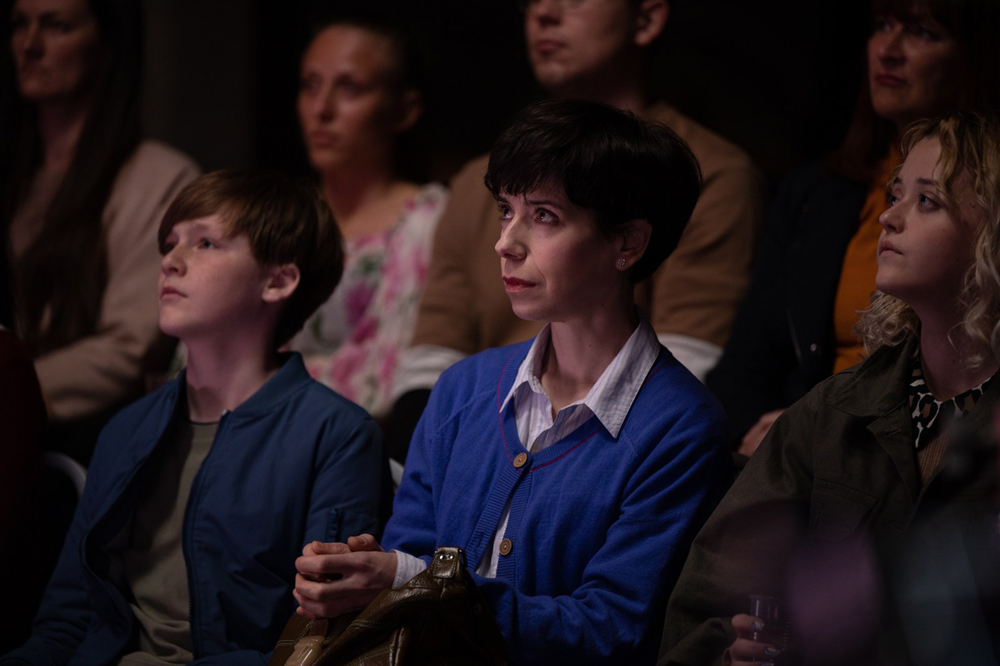!["The Lost King: 500 Years of Destiny" Director Stephen Frears The importance of sticking to your own opinion [Director's Interview Vol.356]](https://cinemore.jp/images/c34441b230fbb8ef6539f39be5b2b74e533c6f63148848009443dc97fa34e7c8.jpg)
© PATHÉ PRODUCTIONS LIMITED AND BRITISH BROADCASTING CORPORATION 2022 ALL RIGHTS RESERVED.
"The Lost King: 500 Years of Destiny" Director Stephen Frears The importance of sticking to your own opinion [Director's Interview Vol.356]
PAGES
- 1
- 2
In 2012, the remains of King Richard III, who had been missing for more than 500 years, were unearthed in a car park in Leicester, England. The person in charge of the investigation was a housewife who was an amateur historian. This amazing true story has been made into a movie by master director Stephen Frears, starring Sally Hawkins. That is ``The Lost King: 500 Years of Destiny''.
Stephen Frears, an Academy Award-winning director who has worked on films about the British royal family in the past, including `` The Queen '' (2006) and `` Queen Victoria's Last Secrets '' (2017), explains how he created this film. Is it? I spoke to him.
“Lost King: 500 Years of Destiny” Synopsis
Philippa Langley is suffering from an unreasonable evaluation by her boss at work, but her estranged husband urges her to continue working to earn a living. One day, her life changed completely when she went to see the play ``Richard III'' accompanied by her son. Richard III is famous as a ruthless and ruthless king based on Shakespeare's historical plays, but he begins to question this fait accompli. Eventually, Philippa becomes immersed in searching for his remains in an attempt to uncover his true identity.
Index
Lies uncovered by movies
Q: This work is based on a true story. What attracted you to this story?
Frears: I'm from Leicester myself, so I remember well when it was discovered. I thought it was a bit silly and funny that the King of England was buried under a parking lot. Then when I heard that Steve Coogan and Geoff Pope were writing this script, I thought it would be comical because it was about them. The script I actually read was as expected and very interesting. I was also drawn to the story and decided to take on the role of director.
Q: Although Philippa continues to fight alone, it was very impressive to see her family, including her son and estranged husband, continue to be her allies.
Frears: What Philippa tried to do was very eccentric, and it's only natural that her family would support her. In fact, even after more than 10 years, they are still living together and are like friends. Her family was a part of her life, and she had no choice but to let go of it. Of course, my feelings for my family don't disappear while I'm making a movie. Family issues are inseparable, which is why you have to do both work and family at the same time. It's difficult in life...

“The Lost King: 500 Years of Destiny” © PATHÉ PRODUCTIONS LIMITED AND BRITISH BROADCASTING CORPORATION 2022 ALL RIGHTS RESERVED.
Q: This work is also a story of a battle against the system and a male society, but I really liked that it didn't simplify the outcome of the battle. How much of that is based on fact?
Frears: It's basically based on facts. As depicted in the movie, immediately after the excavation, the university claimed that they had found the excavation. They put up big advertisements on their buses saying, ``We've excavated Richard III!'' They even lied and said they had paid for all the excavation costs. However, in recent years, their attitude has changed, and they now say, ``We did not excavate the excavations ourselves, but we participated in the excavations.'' I don't know if you've seen this movie, but I think it's a good thing that this movie exposed that lie.
The importance of sticking to your own opinion
PAGES
- 1
- 2

